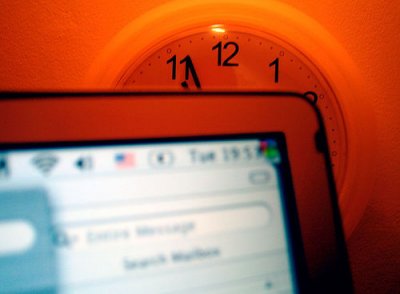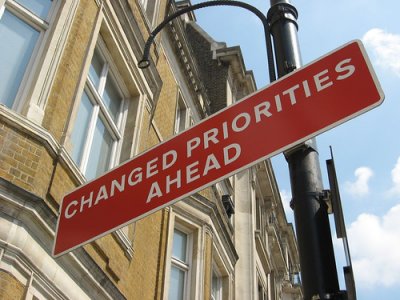Screen Time Recommendations for Better Mental Health

By: rayand
Screen time has been getting a bad rap of late. It’s been blamed for unhappiness and obesity in teenagers, falling grades, and even growing rates of ADHD. [Read more on this in our connected piece, “Is Too Much Screen Time Really a Big Deal?“].
Of course screens are a necessary part of modern life.
So what are some screen time recommendations to ensure your psychological wellbeing is protected?
1. Turn off at night (yes, it’s really true).
You’ve heard this one before. But if there was one thing the science actually is sure on, it’s that the blue light screens emit wreaks havoc with your capacity to fall asleep.
And poor sleep is actually connected to mental health conditions. These include anxiety, addictions, and depression.
TIP: The screen time recommendation here is to turn off minimum one hour before sleep, if not two. Yes, this includes watching films on your laptop in bed, unfortunately.
2. Watch out for ‘screen multi tasking.’
While studies want to connect screens themselves to rising rates of ADHD, other scientists have challenged this. They have pointed out it’s the ways we use screens that needs to be researched.
The idea is we use too many screens at once in unfocussed ways. It’s causing our brains to be scattered. It’s also a way to create stress for yourself, as you can go into overwhelm.

By: Paul Downey
TIP:
- stick to one device at a time
- stop eating in front of screens, which is a form of multitasking
- watch out for having a sea of windows open at once (consider an app such as Onetab, which places all windows into a list you can go back to).
3. Time your use.
Yes, box set binges happen.
But it can be hugely eye opening to spend a few days timing how long you are front of screens.
(Note that experts now recommend that if you are teenager you spend only two hours using screens a day, not including school and homework time.)
Timing your use of screens is also a way to avoid unnecessary stress and anxiety from ‘over-researching’, such as passing an afternoon googling health concerns and spiralling us into anxiety.
Too much choice itself can cause us stress – anyone who has decided to book a discount holiday and spent half a day comparing deals might know this feeling. If you already have trouble making decisions, the choice the internet offers can mean you work yourself up into so much stress you delay the choice entirely, causing more stress.
TIP: Build in ways to avoid letting yourself break your chosen time limits. Have a friend check in that you’ve bought/booked/researched what you meant to and are finished, or do your screen time when you know you only have that one hour before you have to leave for work or a social event.
4. Prioritise what really matters.

By: R/DV/RS
Deciding out-of-the-blue to not eat any sugar or processed foods is something few achieve. Introducing healthier foods and more vegetables, however, and you can see a natural decline in the other ‘junkie’ foods you reach for. And maybe screen-time is the same.
Instead of trying to deny yourself screen time, get your priorities straight and start focussing on what you do want in your life and work towards more of that.
This might be a better social life, time with family, a better career, better fitness, or a relationship. (Speaking of time with family. You are setting the example for you healthy your kid’s relationship with technology will be… something to keep in mind!).
Remember, all that time you spend zoning out of screens is time you can be using to achieve the goals that would make you feel better about yourself and your life.
TIP: Make a list of all the things you want in your life. Then try to write the list in order of what matters to you. Now put in screen time on the list, where you think it fits. Look at all the things you’ve said are more important than spending time on devices. How much time are you devoting each day to these things versus using screens? Set one goal now to bring you closer to one of your real priorities and find a step you can take now.
5. State your intention.
Checking in with our intentions each time we use screens can reveal a lot about our psychological wellbeing. And for this reason it could be debated as the most important of all screen time recommendations.
Are you using screens to get things done, or has your screen usage honestly become a way to ‘zone out’ from reality? If you are always zoning out, what is that about for you? Is using screens the healthiest way forward here?
TIP: Each time you use a screen get into the habit of asking ‘what is my intention here?’. It can help, when doing things like using a computer, to write your intention down on a piece of paper next to you. If it’s to get research done on a certain topic or do your homework, this acts as a reminder when you tail off and start watching Youtube videos.
Always using your screens to feel better or escape?
If you notice that you are constantly turning to your phone or iPad because you want to zone out and feel better, then you are using your devices to avoid unwanted emotions.
Know why you are upset? Try journalling, or talking to a trusted friend.
If you just aren’t sure what is upsetting you, or have nobody to talk to, consider reaching out to a counsellor.
Remember that if you feel at a loss you can always call one of the various free mental health helplines available here in the UK.
A positive new way to use screens is to try online therapy. Harley Therapy also puts you in touch with online therapists right across the UK via our therapy platform.
Still have a question about screen time recommendations, or want to share your own tip with other readers? Use our public comment box below.




